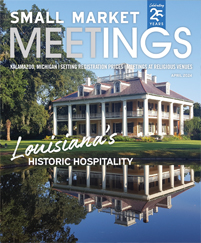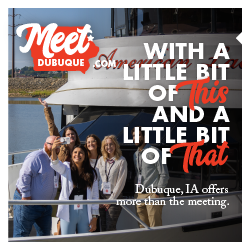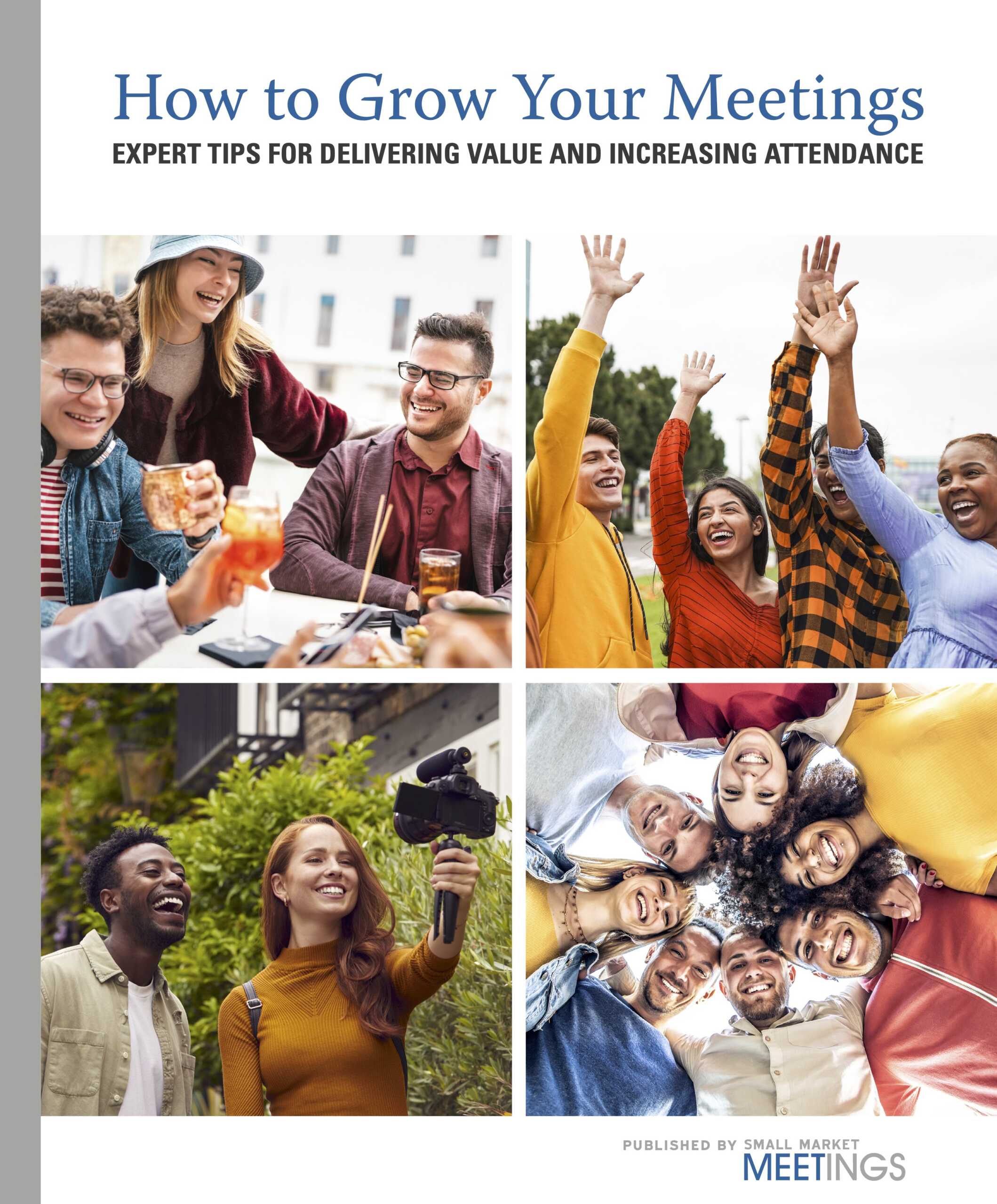Ryan Lewis isn’t a professional speaker, but he has spent the past 10 years planning meetings for the National Association of Free Will Baptists, including its annual conference for 6,000. Lewis is a certified meeting professional (CMP) and is well versed in the best practices of meeting planning, which is why he was tapped to deliver a one-hour course on that subject, aimed at newcomers to meeting planning, at the Religious Conference Management Association’s recent Emerge conference in Omaha, Nebraska.
Lewis’ class was one of eight offered through RCMA’s new certified faith-based meeting planner (CFMP) program. The certification is not tied to the CMP or other industry certifications but is designed somewhat for those who are thrust into meeting planning by their church or denomination — the ushers, pastors, deacons, women’s conference leaders — who have zero experience.
“They can say, ‘I may be new to this, but I can take these seminars and then have some experience and education under my belt,’” said Lewis.
Many of the session’s attendees had been planning meetings for five years or less. Lewis’ presentation also was videotaped so other RCMA members can watch it later, take the postsession test and earn credit toward the CFMP.
To keep his one-hour session succinct, Lewis broke planning into five processes: selling, selecting, signing, specifics and surveying. The first two processes are covered here; next month’s column will cover the remaining three.
Experienced planners who attended the session didn’t hear anything new, Lewis said. But they were reminded of the fundamentals. “I am not an innovator, but I know the things that can make a successful meeting,” he said.
Selling
The inexperienced meeting planner sometimes assumes that “everyone would want to hold my meeting,” said Lewis. But given that hotels today typically have more business than they need, Lewis pointed out, meeting planners must be able to demonstrate their meeting’s value.
Including a thorough event history with the request for proposal is the best way to do so. “If you want to sell your meeting, they need to know what you have done [in the past],” Lewis said.
Lewis is blessed in this respect. His predecessors were amazing recordkeepers, and as a result, he can give meeting venues 25 years of conference history.
Of course, many organizations haven’t done as good a job at recordkeeping as Lewis. But even then, information about past conferences is available with a few phone calls or emails. Planners can build their own database of meeting history by asking previous conference venues for that information, Lewis said.
“You have to do the legwork to make your meeting appealing to a salesperson,” Lewis said. “CVBs are happy to supply information about the economic impact your group had or the calculator that they use to determine it.” At his first pre-conference meeting, Lewis hands over a multipage summary of the past 20 years of meetings. It not only supplies important numbers, such as room pickup and food-and-beverage expenditures, “it is the proof that we have fulfilled our commitments to these places,” he said.
Selecting
Although site selection can begin on paper, it must conclude with a site visit. Planners cannot rely on a salesperson’s assessment of a meeting venue’s possibilities, Lewis said. “I need to put my eyes on the place. My eyes and brain know the puzzle I have to put together.”
Experiencing a site firsthand allows planners to quickly discern whether basics such as parking, transportation, meeting space and a hotel’s style are workable. For example, in Lewis’ case, hotels with a predominance of king guest rooms don’t work well because his attendees often share rooms.
In evaluating a conference site, meeting planners must also consider geography, knowing where their attendees are coming from and how far they will travel; labor situations; and other meetings that will be held there during their conference dates.
Instead of accepting free travel from hosts during site inspections, Lewis’ organization always pays for the travel expenses on these. This helps ensure that Lewis and the association remain impartial during their decision-making.
For more information, contact Lewis at ryan@nafwb.org.











